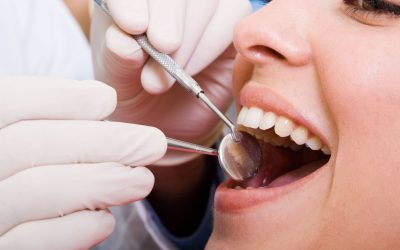The jaw is one of the most used joints in the body. It is responsible for chewing, speaking, and supporting teeth. When the jaw is out of alignment, either due to injury, genetics, or strain, severe pain may follow. People who suffer from jaw pain on a regular basis are labeled as having a TMJ disorder. TMJ is short for temporomandibular joint, which is the name of the hinged joint that allows the jaw to move freely. In extreme cases of TMJ, dentists may recommend the patient undergoes a specific orthodontic procedure in Winchester to reduce the pain. There are several different procedures that may be offered to the patient.
Braces
Many cases of TMJ are caused by a misaligned bite. Whenever the teeth do not properly align when chewing, more stress is put on the jaw. Some dentists recommend treating bite problems with braces. This orthodontic procedure is commonly used to straighten teeth, but it can also be utilized to correct bite issues. Even severe misalignment of the jaw can often be fixed with braces. Depending on the patient’s teeth, braces are usually worn for two to three years.
Crowns
If the patient’s pain is caused by shortened teeth that are forcing the jaw to close more than usual, the dentist may suggest building up the teeth with dental crowns. It is not uncommon for teeth to become shorter with age. It is especially common in patients who grind their teeth at night. Crowns are porcelain caps that are permanently cemented on top of each tooth. The dentist will use bite impressions to create crowns that are long enough to help reduce stain on the jaw.
Mouth Guards
If the dentist feels that a more conservative approach would be beneficial, a simpler orthodontic procedure in Winchester may be suggested. Sometimes creating a mouth guard for the patient to wear at night is all that is needed. This is reserved for patients whose TMJ pain is caused by muscle tension. More often than not, sore muscles are the result of bruxism, the clinical term for tooth grinding. Sleeping with a mouth guard reduces the impact on the jaw when the patient grinds their teeth.
Jaw pain is a sign of an underlying problem. If the pain becomes a daily occurrence, a dentist may use a certain orthodontic procedure to treat it. Contact us is jaw pain is interfering with your daily life.


